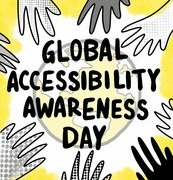Inspiring Words from Industry Leaders: Interview with Erin Lucas, RedShelf
 Inclusive Publishing is continuing with its popular series of interviews with industry leaders, focusing on their approach to accessibility. Erin Lucas is Senior Director of Accessibility at RedShelf and her passion for accessible publishing is contagious! RedShelf are working tirelessly to improve the reading experience for all their readers and we are very proud that they are Inclusive Publishing Partners.
Inclusive Publishing is continuing with its popular series of interviews with industry leaders, focusing on their approach to accessibility. Erin Lucas is Senior Director of Accessibility at RedShelf and her passion for accessible publishing is contagious! RedShelf are working tirelessly to improve the reading experience for all their readers and we are very proud that they are Inclusive Publishing Partners.
Providing born-accessible digital textbooks is a crucial part of a campus support ecosystem to empower ALL students and can provide peace of mind to accessibility office personnel and faculty.
Why is inclusive publishing important to you and/or your organization at this moment in time?
It’s never been more important to ensure students have access to accessible course materials. As many schools continue to limit on-campus learning this fall, the most vulnerable students are in danger of slipping through the cracks. Those who rely on the in-person support of the accessibility office are at even higher risk. Providing born-accessible digital textbooks is a crucial part of a campus support ecosystem to empower ALL students and can provide peace of mind to accessibility office personnel and faculty.
Do you have a top tip for others new to accessibility?
Accessibility is a journey, not a destination – expand your horizons and get connected to other accessibility champions! Look for MeetUps, Facebook Groups and LinkedIn posts to keep learning and connecting. I know from experience that it can be challenging to feel like you’re the only person in an organization who cares about accessibility, but the passion that the a11y community has for the important work we are doing is contagious! Become your organization’s a11y evangelist by sharing your experiences and knowledge with others and I guarantee you’ll find others who care as much as you do.
What you wish you knew about accessibility 10 years ago?
Having worked in the government IT sector for so long before coming to RedShelf, it was always a part of my job – but 10 years ago I had no idea that accessibility would be my full-time job someday. I probably would have connected with more folks outside of the government sector, to better understand how far behind some industries were with accessibility.
What do you think will be the biggest game changer for inclusive publishing in the next few years?
It’s encouraging that so many publishers recognize the many benefits of EPUB and, thanks to this shift, we have seen an incredible change in the inclusivity of our catalog from only 40% EPUB to 75% EPUB in just three years! But, I think the true game changer will be campus stakeholders embracing EPUB format. Adoption of PDF still outpaces EPUB by a large margin and accessible course materials often isn’t top of mind for faculty. Bookstore managers may not know how to encourage accessible adoptions with those faculty members. In addition, many accessibility offices don’t have the bandwidth to learn how to handle EPUB, or have legacy assistive technology that only ingests PDF. But, if nothing else, the accessibility community is tenacious and I’m confident that by continuing to work together – on and off campus – we can affect change.
For those still on the fence, why should they consider accessibility, bearing in mind the possible “new normal” for students in September?
I would reiterate the answer to question #1 – not considering accessibility places students at additional risk. Accessibility and usability go hand in hand, so by keeping accessibility top of mind, you help ALL students
How have good inclusive publishing practices influenced the majority of your customers?
It’s been especially influential on campuses where the accessibility office is part of the process of ensuring inclusive adoptions. They can be the voice for all students, helping faculty understand how time consuming accommodations can be and how EPUB can often eliminate the need for an accommodation. But it’s not just about the students who need additional support. The current generation of learners has always been digital and learns in a completely different way than previous generations. They also expect their technology to work in very specific ways, and only inclusive materials can support those expectations.
Can you sum up your attitude towards inclusive publishing in one sentence.
Inclusive publishing is the key to success for EVERY student’s digital educational experience.
Do you have any final thoughts on accessibility or inclusive publishing practices you would like to share?
A huge thank you to all of our publishing, campus and accessibility industry partners for being so willing to share their knowledge and work with me and my colleagues at RedShelf. Together, we can ensure an accessible future for more generations to come!




